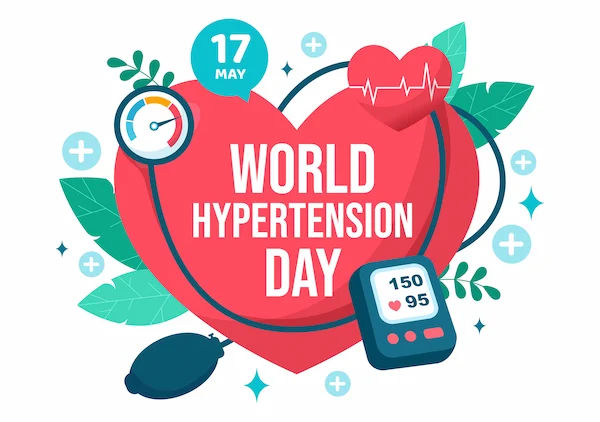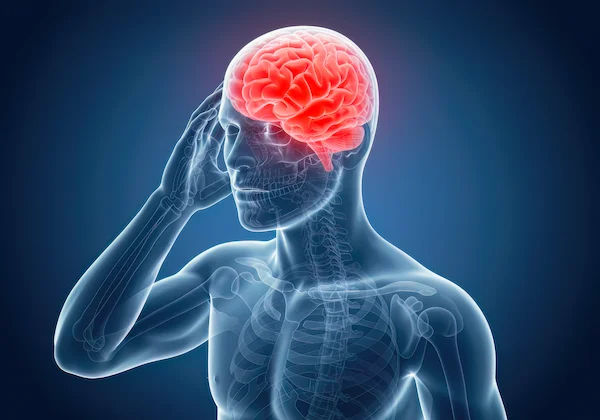Hypertension The Silent Killer - Symptoms & Prevention
Know about hypertension, what it is, dangers, prevention and management through diet and more.

Written by Dr. Siri Nallapu
Reviewed by Dr. D Bhanu Prakash MBBS, AFIH, Advanced certificate in critical care medicine, Fellowship in critical care medicine
Last updated on 13th Jan, 2026
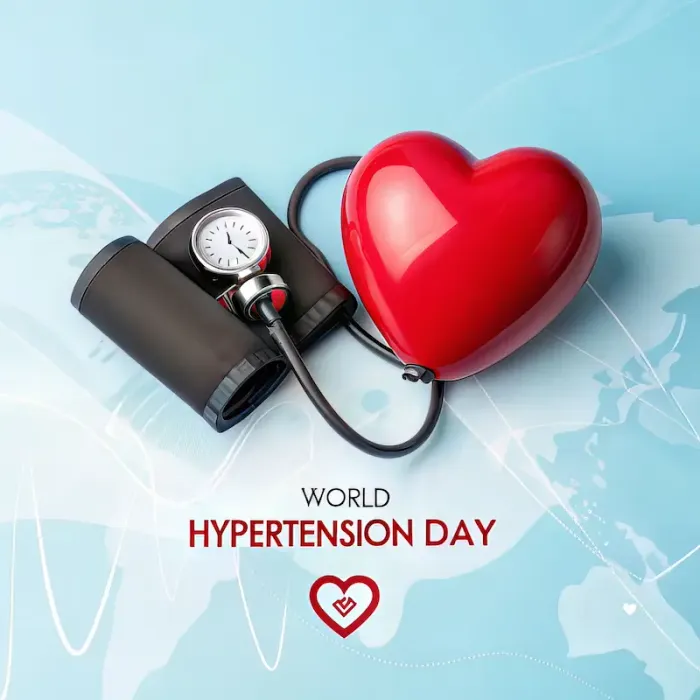
Introduction:
You feel fine. You’re going about your day, seemingly in perfect health. Yet, beneath the surface, a silent, relentless force could be damaging your arteries, heart, brain, and kidneys, often for years without a single warning sign. This is the reality of hypertension, commonly known as high blood pressure, and it’s why it’s earned the ominous title of the "silent killer." Hypertension is a primary driver of heart attacks, strokes, and kidney failure, affecting nearly a third of adults globally. The scariest part? Most people have no idea their blood pressure is dangerously high. This comprehensive guide will demystify hypertension, reveal its hidden dangers, and arm you with the knowledge to detect, prevent, and manage this condition effectively.
What is Blood Pressure? Understanding the Numbers
Blood pressure isn't just a single number; it's a measure of the force your blood exerts against your artery walls as your heart pumps. Think of your circulatory system as a network of garden hoses. Too much pressure over time can weaken the hose, cause leaks, or make it burst. This force is measured in millimetres of mercury (mmHg) and is represented by two figures, written as a ratio.
1. Systolic Pressure: The Force of a Heartbeat
This is the top number. It represents the maximum pressure in your arteries when your heart muscle contracts (beats) to pump blood out into your body. It’s the surge of pressure you feel in a pulse. A high systolic reading is a significant indicator of cardiovascular risk, especially in older adults.
1. Diastolic Pressure: The Pressure Between Beats
This is the bottom number. It represents the pressure in your arteries when your heart is at rest between beats, refilling with blood. While both numbers are important, elevated systolic pressure is often considered a major risk factor for heart disease in people over 50. Understanding what a normal blood pressure reading is is the first step toward recognising a problem.
Consult a Cardiologist for Personalised Advice
Dangers of Uncontrolled Hypertension
Ignoring hypertension is like ignoring a slow leak in a critical pipe. The constant, excessive pressure causes microscopic tears in the delicate lining of your arteries. These tears become scar tissue, which acts like a magnet for plaque—a fatty substance made of cholesterol, calcium, and other materials. This process, called atherosclerosis, narrows and stiffens your arteries, setting the stage for catastrophic health events.
Heart Attack and Heart Disease
The coronary arteries supply oxygen-rich blood to your heart muscle. When these become narrowed by plaque, blood flow is reduced. If a plaque ruptures, a blood clot can form, completely blocking the artery and causing a heart attack. The heart muscle, starved of oxygen, begins to die. Furthermore, the heart must work much harder to pump against high pressure, which can lead to its thickening and weakening—a condition known as heart failure, where the heart can't pump blood efficiently.
Stroke and Brain Aneurysm
Hypertension is the most important risk factor for stroke. It can cause a stroke in two ways: an ischemic stroke (a clot blocks a narrowed artery in the brain) or a hemorrhagic stroke (a weakened blood vessel in the brain bursts due to the pressure, causing bleeding). Consistently high force can also create bulges (aneurysms) in blood vessel walls. If a brain aneurysm ruptures, it causes a hemorrhagic stroke, leading to severe brain damage or death.
Kidney Damage and Failure
Your kidneys are filters filled with tiny blood vessels. High blood pressure can damage these vessels, preventing the kidneys from effectively removing waste and excess fluid from your body. This leads to a dangerous cycle: the retained fluid further increases blood pressure, causing more damage. This can eventually result in kidney failure, requiring dialysis or a transplant.
Effective Strategies to Prevent and Manage Hypertension
The good news is that hypertension is highly manageable. For many, how to lower blood pressure naturally starts with foundational lifestyle changes. These modifications are powerful, often as effective as medication, especially in the early stages.
The DASH Diet: Your Nutritional Blueprint
The Dietary Approaches to Stop Hypertension (DASH) diet is consistently ranked as one of the best diets for heart health. It’s not a fad; it's a sustainable eating plan focused on:
1. Reducing Sodium: Aim for less than 2,300 mg (ideally 1,500 mg) per day. Read labels, cook at home, and limit processed foods.
2. Increasing Potassium: This mineral helps balance sodium in your cells. Load up on fruits (bananas, oranges), vegetables (spinach, sweet potatoes), and legumes.
3. Emphasising Whole Foods: Focus on vegetables, fruits, whole grains, lean proteins (fish, poultry), and low-fat dairy.
The Role of Regular Physical Activity
Aim for at least 150 minutes of moderate-intensity exercise (like brisk walking, cycling, or swimming) per week. Exercise strengthens your heart, allowing it to pump more blood with less effort. This decreased force on your arteries directly lowers your blood pressure. Consistency is key to finding an activity you enjoy to make it a permanent part of your routine.
Unique Insight: Beyond just "exercise more," consider "movement snacks." Research shows that breaking up prolonged sitting every 30 minutes with 3-5 minutes of light activity (walking in place, stretching) can have an immediate, positive effect on vascular health and blood pressure regulation, complementing your dedicated workout sessions.
If your blood pressure remains high despite diligent lifestyle changes, it is crucial to seek professional guidance. Consult a doctor online with Apollo24|7 to discuss your numbers and explore whether prescription medication is the right next step for you.
Conclusion
Hypertension may be a silent threat, but it doesn't have to be a secret one. By understanding the potent risks of uncontrolled high blood pressure from heart disease to stroke, you empower yourself to take action. Knowledge is your first defense: know your numbers, know your risk factors, and know the lifestyle strategies that can make a profound difference. Remember, small, consistent changes like adopting the DASH diet, incorporating daily movement, and managing stress can dramatically alter your health trajectory. This condition is lifelong, but it is also highly manageable. Don't wait for a symptom that may never come.
Consult a Cardiologist for Personalised Advice
Consult a Cardiologist for Personalised Advice

Dr. Anand Ravi
General Physician
2 Years • MBBS
Bengaluru
PRESTIGE SHANTHINIKETAN - SOCIETY CLINIC, Bengaluru

Dr. Deepesh Venkatraman
Cardiologist
10 Years • MBBS, MD (Gen Med), DM (Cardio), DNB (Cardio)
Chennai
Apollo Medical Centre Kotturpuram, Chennai
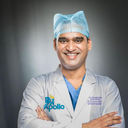
Dr. L Kiran Kumar Reddy
Cardiologist
15 Years • MBBS,MD, Gen Med (KMC) DM Cardiology (JIPMER)
Hyderabad
Apollo Medical Centre Kondapur, Hyderabad
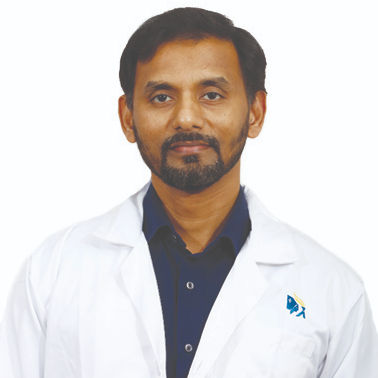
Dr. Refai Showkathali
Cardiologist
24 Years • MBBS, MRCP, FRCP, CCT (Cardiology), FACC, FESC, Fellow (TAVI)
Chennai
Apollo Hospitals Greams Road, Chennai
(175+ Patients)

Dr. E Prabhakar Sastry
General Physician/ Internal Medicine Specialist
40 Years • MD(Internal Medicine)
Manikonda Jagir
Apollo Clinic, Manikonda, Manikonda Jagir
(175+ Patients)
Consult a Cardiologist for Personalised Advice

Dr. Anand Ravi
General Physician
2 Years • MBBS
Bengaluru
PRESTIGE SHANTHINIKETAN - SOCIETY CLINIC, Bengaluru

Dr. Deepesh Venkatraman
Cardiologist
10 Years • MBBS, MD (Gen Med), DM (Cardio), DNB (Cardio)
Chennai
Apollo Medical Centre Kotturpuram, Chennai

Dr. L Kiran Kumar Reddy
Cardiologist
15 Years • MBBS,MD, Gen Med (KMC) DM Cardiology (JIPMER)
Hyderabad
Apollo Medical Centre Kondapur, Hyderabad

Dr. Refai Showkathali
Cardiologist
24 Years • MBBS, MRCP, FRCP, CCT (Cardiology), FACC, FESC, Fellow (TAVI)
Chennai
Apollo Hospitals Greams Road, Chennai
(175+ Patients)

Dr. E Prabhakar Sastry
General Physician/ Internal Medicine Specialist
40 Years • MD(Internal Medicine)
Manikonda Jagir
Apollo Clinic, Manikonda, Manikonda Jagir
(175+ Patients)
More articles from Blood Pressure Changes
Frequently Asked Questions
1. Can you tell if you have high blood pressure?
Typically, no. Most people with hypertension feel completely normal, which is why it's so dangerous. Severe hypertension might cause headaches, shortness of breath, or nosebleeds, but these are not specific and usually don't occur until life-threatening levels are reached.
2. What is the main cause of hypertension?
For most adults, there's no single identifiable cause. This is called primary (essential) hypertension, and it develops gradually over years due to a combination of genetic and lifestyle factors (diet, weight, activity level). Secondary hypertension is caused by an underlying condition like kidney disease or thyroid problems.
3. How can I quickly lower my blood pressure in a pinch?
There's no safe, instant 'cure.' The best approach is long-term management. However, in a moment of stress, practising deep breathing exercises for 5-10 minutes can help promote relaxation and cause a temporary dip. For sustained control, consistent lifestyle habits are essential.
4. Are home blood pressure monitors accurate?
Yes, modern automatic, cuff-style (upper arm) monitors are generally very accurate when used correctly. Ensure the cuff is the right size, don't smoke or drink caffeine 30 minutes before, and rest for 5 minutes before reading. Validate your device at your doctor's office periodically.
5. Can young people get hypertension?
Absolutely. While risk increases with age, young adults and even children can develop high blood pressure, often linked to obesity, poor diet, and inactivity. Early screening is important, especially if there is a strong family history of the condition.
